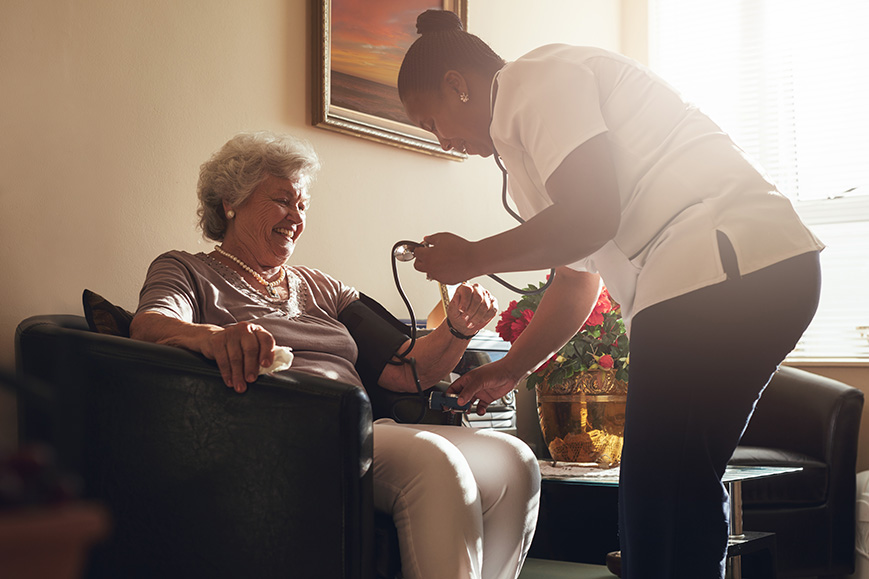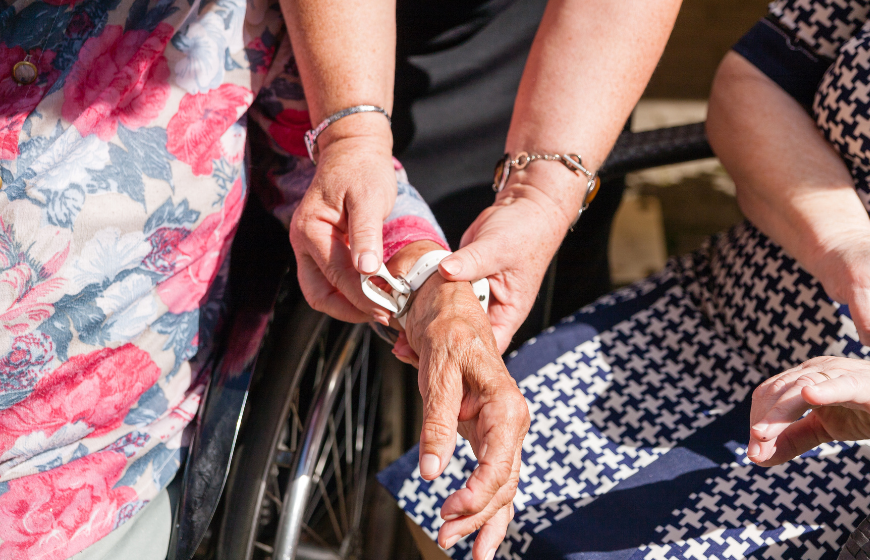A Week to Celebrate Those Who Care
May gives us the opportunity to recognize and celebrate compassionate professionals who make a difference every single day. National Nurses Week (May 6 – May 12) shines the spotlight on those who take on more than a career—they take on a calling.
Nowhere is this more evident than home care nursing. At Alliance Homecare, we see how our nurses bring care, comfort, and dignity not just to our clients but to their loved ones as well. As we honor today’s home health nurses, we also reflect on how their role evolved from the early days of nursing.
Key Dates to Celebrate
- May 6 – National Nurses Day
- May 7 – National School Nurse Day
- May 8 – National Student Nurses Day
- May 11–17 – National Skilled Nursing Care Week & Neuroscience Nurses Week
- May 12 – International Nurses Day (and Florence Nightingale’s birthday)
Let’s take a look back at how this noble profession began and laid the foundation for the work we honor this week.
The Roots of Modern Nursing
Thanks to pioneers like Florence Nightingale, the modern nursing profession began to take shape during the late 19th century. She revolutionized the practice of nursing during the Crimean War by emphasizing cleanliness, compassionate care, and patient advocacy. Her work continues to inspire generations of caregivers.
Mary Eliza Mahoney, the first African American licensed nurse in the United States, broke racial barriers in the nursing profession and was known for her professionalism, compassion, and dedication to patient care. She graduated in 1879 from the New England Hospital for Women and Children and co-founded the National Association of Colored Graduate Nurses, leaving a legacy of advocacy and empowerment and uplifting Black nurses across the country.
The Origins of Home Care Nursing
While hospitals became more established in the 20th century, the roots of home-based care can be traced back to the late 1800s. Public health nurses then made home visits to support those who needed care—and those who couldn’t access institutional care. They focused on education, sanitation, and preventive care.
A turning point came in 1893 with the establishment of Visiting Nurse Service of New York. Its mission: to deliver skilled nursing care to underserved communities. VNSNY and other such organizations formalized sending trained nurses into patients’ homes. Thanks to these nurses, home care nursing became recognized as a vital extension of the institutional healthcare system.
World Wars and the Expansion of Nursing
Both World War I and World War II dramatically expanded what nurses provided. They were on the front lines, often in makeshift hospitals and battlefield conditions, while caring for patients with trauma and infections. They reinforced the value of home-based care once soldiers headed home needing long-term rehabilitation.
When government support for healthcare increased with the creation of Medicare and Medicaid programs in the 1960s, funding for home health services allowed more Americans to get skilled nursing care in the comfort of their homes.
The Rise of Home Health Nursing as a Specialty
By the 1970s and 1980s, home health nursing was solidly recognized as a specialty. Nurses played a powerful role in post-op care, chronic condition management, and end-of-life support. Advancements in medical technology like portable IVs and wound care systems meant more complex care could be provided in the home.
Home care nurses became experts in multitasking and providing both medical and non-medical services. They’d care for wounds, manage medications, educate families, and serve as the main point of contact with doctors and specialists.
The Impact of COVID-19
The pandemic put an intense spotlight on the value of home health care. Hospitals were overwhelmed, and patients needed safe, effective, and compassionate alternatives. Home care nurses were frontline responders: they helped manage COVID-positive patients at home, supported discharged patients who were still recovering, and provided continuity of care for those with chronic conditions.
Telehealth also exploded in popularity, giving nurses the opportunity to pivot and use video calls and platforms to monitor patients, assess symptoms, and adjust treatment plans. Their flexibility and resilience proved invaluable.
Today’s Home Care Nurse: A Lifeline for Loved Ones
We see home care nurses today everywhere from urban apartments to rural communities. They serve patients of all ages and backgrounds, often forming deep connections with the families they provide care for.
From providing post-surgery care for one patient to helping another manage a chronic condition, home health nurses are medical experts, educators, emotional supporters, and advocates all in one. And unlike hospitals where staff members rotate, home care nurses are a consistent, trusted presence in their patients’ lives. They also offer something invaluable: making their patients feel safe and supported in the comforts of home.
The Future of Home Care Nursing
With an aging population, a rise in chronic conditions, and a growing preference for care at home, demand for home care nurses is expected to surge. Technology will continue to serve nurses and enhance the care they can bring to patients in their homes: from remote patient monitoring to AI-assisted care planning.
What does this mean for the nurses we love and celebrate? More support in how they make decisions for their patients, better tools to work with care teams in support of their patients, and greater care innovation right in our living rooms.
At Alliance Homecare, we give our greatest gratitude to the home care nurses who serve our clients—this week and every week. Their work demands clinical excellence as well as personal comfort. They bring healthcare to the front doors of our clients when it’s most needed, upholding a tradition created many generations before them.
From Nightingale and Mahoney to the digital age of today’s home care options, nurses have always been the heart of healing.




